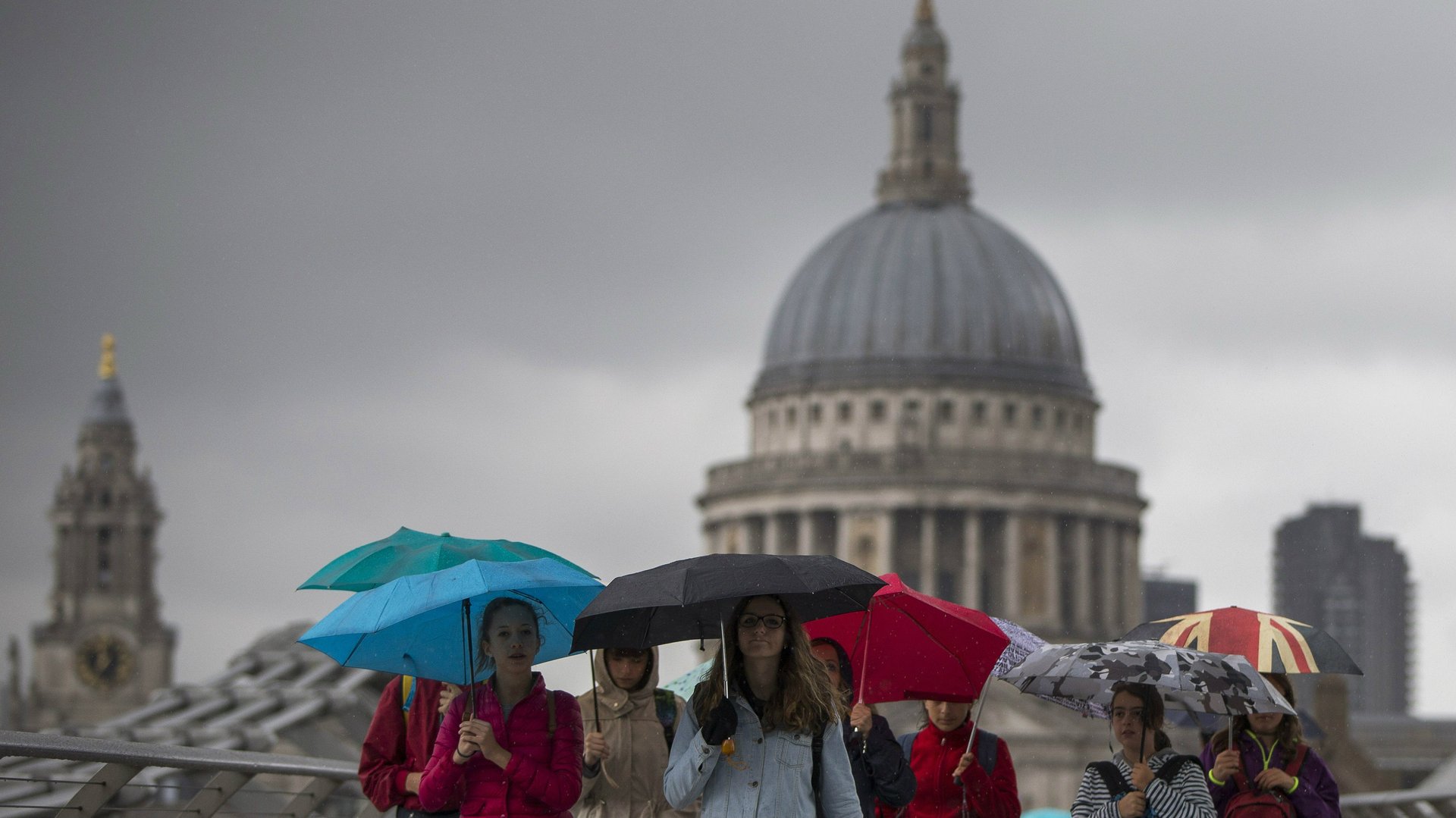It’s official: Brits are all getting pay cuts
It’s been a miserable decade for British workers.


It’s been a miserable decade for British workers.
Like the years after the global financial crisis, average UK wages are once again increasing at a slower pace than prices are rising. Brits got just two-and-a-half short years of respite from what is effectively a pay cut.
Inflation-adjusted wage growth fell in March for the first time since September 2014, according to data published today by the Office for National Statistics. Even as the UK’s unemployment rate is at its lowest level in more than four decades, the squeeze on consumers from sluggish wage growth and rising inflation are draining the economy. First-quarter GDP growth was worse than economists expected because inflation hit consumer spending, which had been the bedrock of UK economic growth.
For now, the problem is expected to worsen. Inflation will keep rising as the effect of the pound’s decline after the Brexit vote feeds into import prices. And so, prices will keep exceeding disappointingly slow wage growth. The UK hasn’t left the EU yet and already Brexit is far more than an abstract idea.